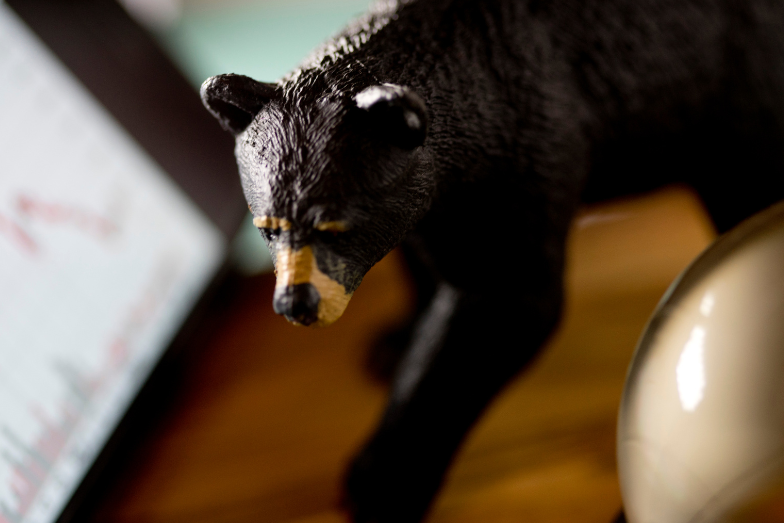You have probably heard of bull and bear markets. Bull and bear are symbols for positive and negative price developments on the stock market, respectively. When share prices rise in the long term, it’s called a bull market, and when they fall again, it’s called a bear market.
Currently, we are in a bear market, which worries most investors. However, this is part of the normal economic cycle and is completely normal. What precisely a bear market is, how long it usually lasts and how you can best behave during a bear market you’ll find out here:
Table of Contents
What is a bear market?
A bear market is when the share prices of the most crucial market indices, such as the German DAX 40 share index or the U.S. S&P 500, fall by at least 20 percent compared to their last high. The fall in share prices is caused by pessimistic investors in the market, who assume bad developments, i.e., price declines, and therefore invest less and/or sell their investments. Prices fall.
Pessimism among investors is usually not a coincidence. Crises, wars, pandemics, and a weakened economy can cause negative expectations among investors.
How long does a bear market last?
As a rule, bears have a short life in the stock market. From a historical perspective, bear markets have lasted less than ten months (289 days) on average. In comparison, a bull market lasts an average of about 2.7 years (973 days).
It is also possible for the stock market to make significant gains during a bear market. For example, over the past two decades, more than half of the S&P 500’s strongest days occurred in bear markets.
What’s the best way to behave during a bear market?
Avoid panic
First of all, stay relaxed! Try not to panic or make impulsive decisions. Looking at the prices every 5 minutes in a panic does not help. Therefore, plan your investment strategy with foresight instead of excitedly checking the prices all the time.
In addition, always keep in mind that after a low comes an upswing. Therefore, price fluctuations in the stock market are entirely normal and will always occur.
Go for diversification
Maybe you’ve heard the saying, “Broadly diversified, never regretted.” This motto holds true even in a bear market: if you invest in a broadly diversified portfolio, you spread your risk. As a result, you can take advantage of income opportunities worldwide. The good thing is that all UnitPlus portfolios invest in over 800 companies worldwide.
Use a savings plan
When you regularly invest with a savings plan, you benefit from the cost average effect and buy more shares for your portfolio when prices are lower. The personalized savings plan from UnitPlus is especially convenient in volatile times, as it suggests monthly amounts that suit your financial situation.
Stay true to your investment strategy
Especially in fluctuating markets, staying true to your defined investment strategy and keeping your eye on your target is essential. In the rarest of cases, your starting position and your objectives will change due to the current market situation.
Conclusion
Bear markets can be scary at first glance, but they are part of a normal economic cycle and can often lead to even higher market returns. A diversified portfolio, a good long-term investment strategy, and a savings plan will allow you to remain calm and confident during market fluctuations.













